Like other memorable life events, many people will remember the last time they heard the synchronized song of the cicada.
Some find their chorus to be deafening and maddening, while others think it’s strangely beautiful -- a triumphant reminder of the resilience of nature.
For an organism that spends more than 99 percent of its life below ground, it certainly gets a lot of attention, and that will again be the case this spring.
Maybe this is because of their eerie song, or their freaky, almost alienlike appearance.
This year, an especially large group called 17-year cicadas will emerge in Pennsylvania.
A Big “Hatch”
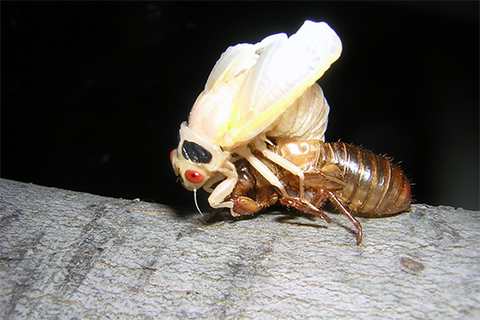
The emergence of the 17-year cicada, also called Brood X, is the largest such emergence of the eight different broods known to reside in Pennsylvania.
Their Pennsylvania range roughly follows the Appalachians from Wyoming and Lackawanna counties south to York County and southwest to Somerset County -- and all counties in between.
Their continuous range extends into Maryland, West Virginia, and Virginia.
Interestingly, Pennsylvania’s Brood X population is dwarfed by the one that occupies nearly all of Indiana and a big part of Ohio.
A sizable Brood X population also exists in eastern Tennessee and extends into northern Georgia. There is an isolated Brood X population that occupies a small part of southern Michigan, as well.
A Feeding Frenzy
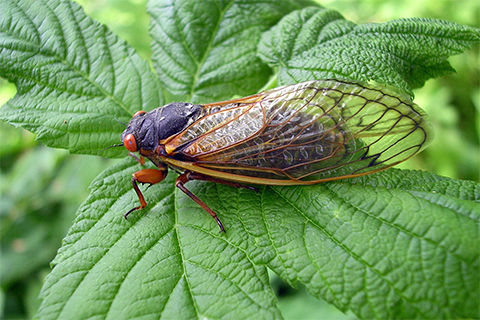
Billions of these soft-bodied insects are tasty bundles of protein for insect-eating forest dwellers, especially birds and mammals.
As many as several hundred cicadas per square meter are gulped by the millions by black bears, turkeys, squirrels, raccoons, possums, skunks, crows, and blue jays -- and that’s just on the land.
They also make a tasty meal for hungry trout, bass, and muskies awaiting in forested lakes and streams as well.
Ecosystem Effects
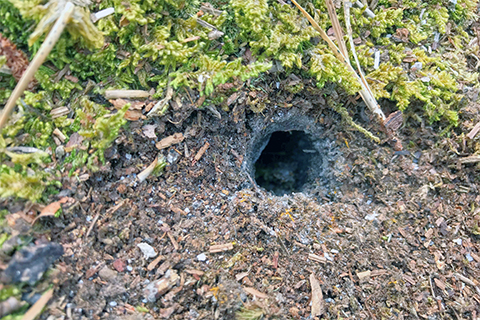
The escape hole where a Brood X cicada will emerge at Kings Gap Environmental Education Center
Scientists have studied the impact of this sudden input of nutrients in the food web, and evidence shows a major, positive effect on survival of wildlife offspring and future abundance.
The positive effect also extends to the forest itself, as countless cicadas eventually die, decay, and release their nutrients to the forest soil.
Effects on Trees
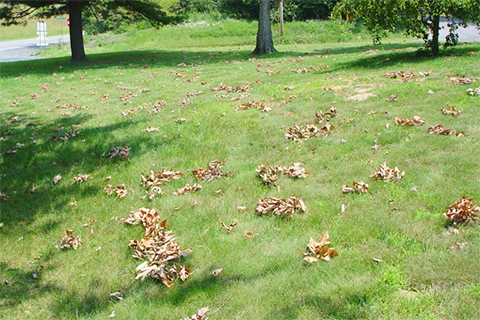
What are cicadas doing while spending all of that time underground?
Growing and developing cicadas spend nearly all of their lives sucking nutrients from the roots of forest trees.
This weakens trees, but Pennsylvania forests seem to take it in stride, having evolved with cicadas for millennia.
The most visible effects from periodical cicadas occur above ground on slender twigs, where females slice slits in preparation for depositing their eggs. This results in unsightly twig die-back but usually does little harm to the trees.
Periodical Cicadas Are Not Harmful to Humans or Pets
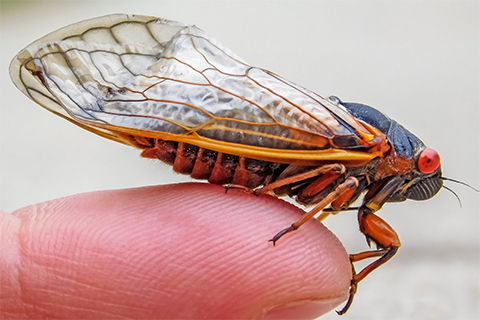
Periodical cicadas may look a little frightening, but they are not harmful to us or our cherished animals -- they do not bite or sting.
Their clumsy flight pattern may be alarming, as sometimes they end up landing on people, but they’re easily sent on their way by simply brushing them off.
Participate in A Natural Phenomenon
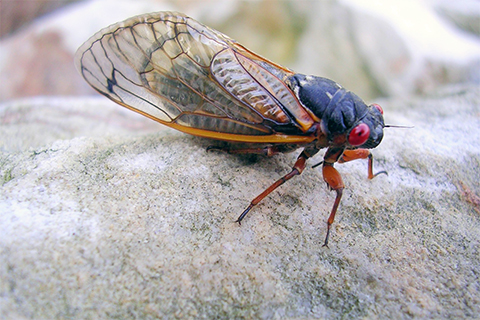
Periodical cicadas are a natural and vital component of our temperate forest ecosystem.
What’s more, they are one of the most interesting species to study because of their extremely unique life cycle, and researchers need your help to learn more about them.
Cicada Safari is a great opportunity to help research these fantastic bugs and map the 2021 emergence of the periodical cicada Brood X in the United States.
Download the free app and explore Penns Woods to find periodical cicadas -- it shouldn’t be too hard!
Photograph and submit the cicadas to Cicada Safari, and after the photos are verified, they will be posted to the live map.